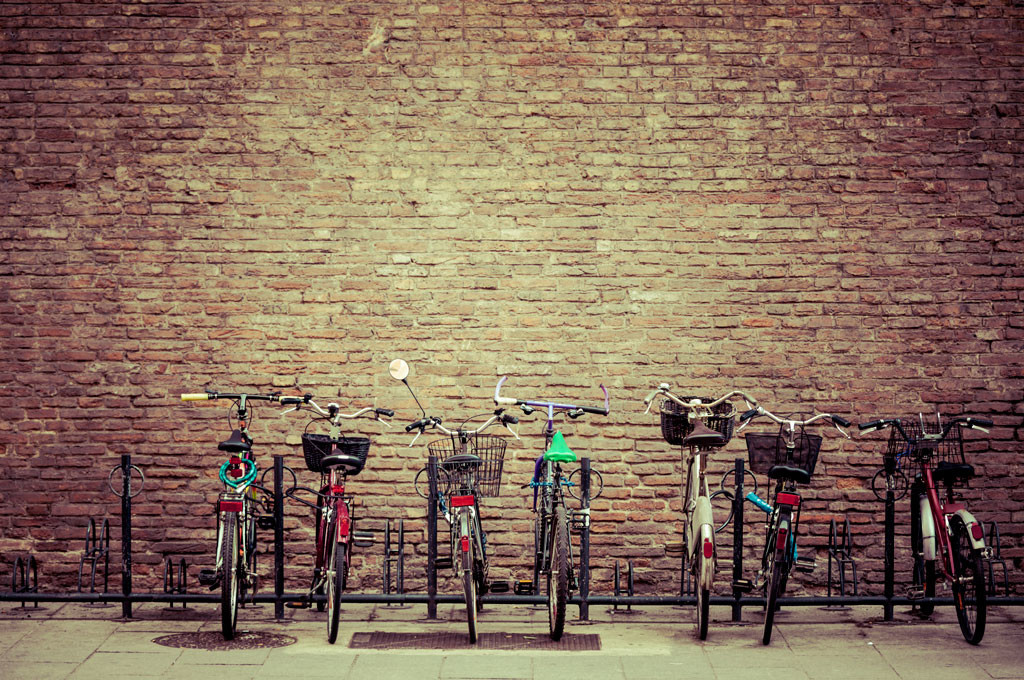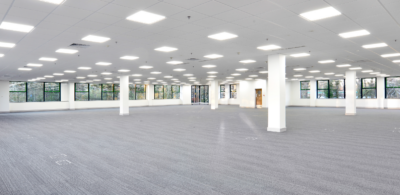Over 900,000 people in the United States rode bicycles to work in 2014. This fact and other data collected by the US Census Bureau’s American Community Survey (ACS) show that the number of workers commuting to work by bicycle in the US grew 62% from 2000 to 2014, making cycling the fastest-growing commute mode in the United States. In light of this change, particularly in the nation’s 50 largest cities, landlords need to reassess the facilities they offer; failing to do so can mean the loss of valuable new talent.
Plus: How telehealth is turning the doctor-patient relationship on its head | Boston marks 21 years on top of NIH funding
The rate of bike commuting varies across communities and regions and is affected by factors such as community size, design, infrastructure and weather. The city of Davis, California, currently has the highest percentage of residents biking to work, at 23.2%. Home to UC Davis as well as the US Bicycling Hall of Fame, Davis is a pioneer in the promotion of bicycle infrastructure and bike-friendly facilities.
Also: Emerging building technologies and GSA | Debunking the myths of commercial real estate
Many commuters in major cities also choose to ride their bicycle to work, with Portland, Oregon, leading the pack. 7.2% of the city’s workforce commutes by bicycle, a 300% increase from 2000. The West leads the other regions by far, although the size of the office markets that top the list varies widely. The top ten cities and the respective size of the office market for each are included in the table below:
| City | Office Market SF (1000s) | Bicyclists | % of bike commuters |
% growth from 2000-2014 |
| Portland, OR | 34,224 | 23,347 | 7.2% | 306.6% |
| Minneapolis, MN | 33,879 | 10,426 | 4.6% | 145.9% |
| San Francisco, CA | 88,944 | 21,068 | 4.4% | 120.8% |
| Washington DC | 143,853 | 13,330 | 3.9% | 234.0% |
| Seattle, WA | 56,528 | 14,157 | 3.7% | 96.6% |
| Oakland, CA | 17,255 | 7,231 | 3.7% | 199.6% |
| Tuscon, AZ | 4,852 | 8,169 | 3.5% | 58.4% |
| New Orleans, LA | 4,251 | 5,701 | 3.4% | 189.5% |
| Denver, CO | 35,140 | 8,848 | 2.5% | 161.7% |
| Boston, MA | 63,254 | 8,141 | 2.4% | 148.1% |
What does this mean for office landlords? It’s no longer enough to have a bike storage rack in an underused corner of the building’s parking garage. Tenants are increasingly looking for secured bike facilities, as well as showers and lockers, as a standard amenity. According to Tim Lahey, Vice President for Colliers International | Boston’s downtown leasing team: “A building not offering these amenities is at a competitive disadvantage.” This statement is relevant to landlords and companies alike as they compete to get the best talent.
Municipalities are also supporting bike-friendly business practices and offering awards to companies that encourage their employees or customers to ride their bikes. Practices include installation of outdoor bike racks or secure covered bike parking, financial incentives for bike commuters or providing corporate memberships to bike sharing systems.
Boston Properties took note of its tenants’ desire for bike storage and in May launched a free bike valet service at 399 Park Avenue, NY for tenants of five of its midtown office towers. This service allows cyclists to turn over their bike to an attendant for pickup at the end of the workday. The landlord also provides bottled water and towel wipes, and keeps equipment such as an air pump and tire-pressure gauge on hand. The demand is not limited to urban properties: Boston Properties’ CityPoint in Waltham, Massachusetts, is a 25-acre park 11 miles west of Boston whose landlord is looking to offer bike amenities, such as a shared ride program and additional bike racks.
Given increased traffic congestion on most major roadways, as well as the sustainability and wellness benefits bike ridership provides, it is not surprising that this mode of commuting is on the rise.
Mary is Director of Market Strategy & Research for Colliers International in Boston. When not focused on custom analytics for the firm’s clients and business lines, she is a pilates and yoga enthusiast, has been known to play a mean game of Scrabble and is a faithful member of Red Sox Nation.
Sources: Colliers International GIS, Colliers International Boston Market Strategy and Research, US Census, League of American Bicyclists 2014 American Community Survey Data Report

 Colliers Insights Team
Colliers Insights Team

 Aaron Jodka
Aaron Jodka
 Amber Merrigan
Amber Merrigan
 Andrew Steele
Andrew Steele